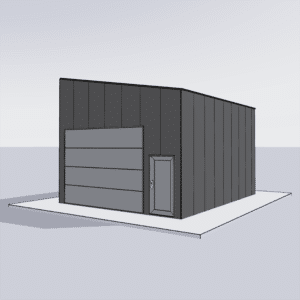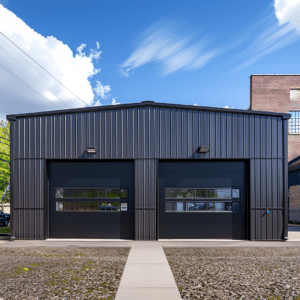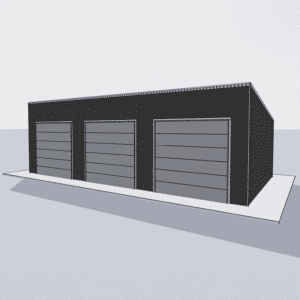Have you ever found yourself in a dimly lit room, pondering the flickering light fixture above and thinking, “I could fix that”? Embarking on a journey of DIY electrical repairs and upgrades can seem daunting, but it can also be an empowering and rewarding experience. You don’t have to be a seasoned electrician to tackle some repairs at home, though understanding the fundamentals is crucial to ensure safety and efficiency.
When it comes to DIY electrical repairs, a basic understanding of your home’s electrical system is indispensable. This knowledge helps prevent accidents and ensures the correct execution of the project. Safety should always be the cornerstone of any DIY project, so adhering to some essential guidelines can keep you on the safe side of your electrical endeavors.
Understanding Your Home’s Electrical System
Grasping the basics of how your electrical system works is like having a road map—you need it to navigate your way successfully. Your home’s electrical system generally includes a main panel that connects to outside power lines, and from there, electricity is distributed through various circuits. These circuits branch out to power outlets, lighting, and appliances throughout your space. Each of these circuits is protected by circuit breakers or fuses to safeguard against electrical overloads.
When tackling Residential Construction or making small upgrades, start by identifying the circuit you will be working with and turning off power to that circuit at the breaker. This ensures maximum safety and prevents potential electrical shocks.
Essential Tools for DIY Electrical Repairs
Just like a chef needs the right culinary tools, anyone pursuing DIY electrical projects requires specific instruments to ensure efficiency and safety. Some fundamental items include:
– **Voltage Tester:** A vital device used to ensure the power is indeed off before you begin any repairs.
– **Wire Strippers:** Essential for safely removing insulation from electrical wires.
– **Screwdrivers and Pliers:** Basic tools for handling small components and connections.
– **Electrical Tape and Wire Nuts:** For securing and insulating connections.
For a comprehensive list of tools, be sure to explore DIY tools for home improvement.
Safety First: Guidelines to Follow
Safety is paramount when working with electricity. To ensure you and your home remain safe during DIY electrical repairs, follow these crucial guidelines:
– **Turn Off Power:** Before working on any circuit, switch off the corresponding breaker in your electrical panel.
– **Test Before You Touch:** Use a voltage tester to double-check that the circuit is off.
– **Respect the Limits:** Know the limitations of your skills and call a professional for more complex repairs.
– **Wear Protective Gear:** Gloves and safety glasses can protect you from accidental contacts.
For more detailed safety guidelines, consulting the Ontario Electrical Safety Authority is a wise decision, especially for residents of Ontario.
Common DIY Electrical Projects You Can Tackle
Now that we have the groundwork covered, what kind of DIY electrical projects can you undertake? Here are some common, manageable tasks:
– **Replacing Light Fixtures:** If your light fixture is outdated or malfunctioning, replacing it can be a straightforward task.
– **Installing New Outlets:** Need more plug-in points? Adding extra outlets can be done with the right tools and guidance.
– **Updating Light Switches:** Change your traditional light switches to dimmers for mood lighting.
Whether working on a modern barn, a standard household, or a dedicated Garage, knowing the ropes of these projects enhances their beauty and function.
When to Call in the Pros
While many DIY electrical repairs can be straightforward, some tasks are best left to professionals. If you’re dealing with:
– **Complex Wiring:** Especially those involving panels or significant rewiring.
– **Persistent Electrical Issues:** Such as frequent breaker tripping.
– **High Voltage Work:** Anything involving more than standard household voltage.
In these cases, it’s prudent to hire a licensed electrician. They bring expertise and safety assurances that an amateur might lack, ensuring that more complex projects comply with electrical codes.
Upgrade Ideas for Increased Home Safety and Efficiency
Once you’ve mastered the basics, consider these upgrades to enhance your home’s efficiency and safety:
– **Energy-Efficient Lighting:** Swapping out traditional bulbs for LEDs can save energy and reduce electricity bills.
– **Smart Home Integration:** Installing smart thermostats or smart lights can provide convenience and efficiency.
– **Enhanced Security Systems:** Boost your home’s safety with DIY home security systems that you can install yourself.

Conclusion
Embarking on a DIY electrical project can transform your home while empowering you with new skills. From understanding your home’s electrical framework to safely undertaking repairs and achieving energy-efficient upgrades, you become not just a homeowner but a home improver. Whatever your goal, whether it’s a modern barn or a cozy nest, learning to handle electrical repairs can pay dividends in cost savings and personal satisfaction.
So, next time you’re pondering dim lights or considering new electrical fixtures, remember—sometimes the most illuminating journey is the one you power yourself. Armed with the right knowledge, tools, and tips, you’re ready to tackle those DIY electrical repairs with confidence and safety.











